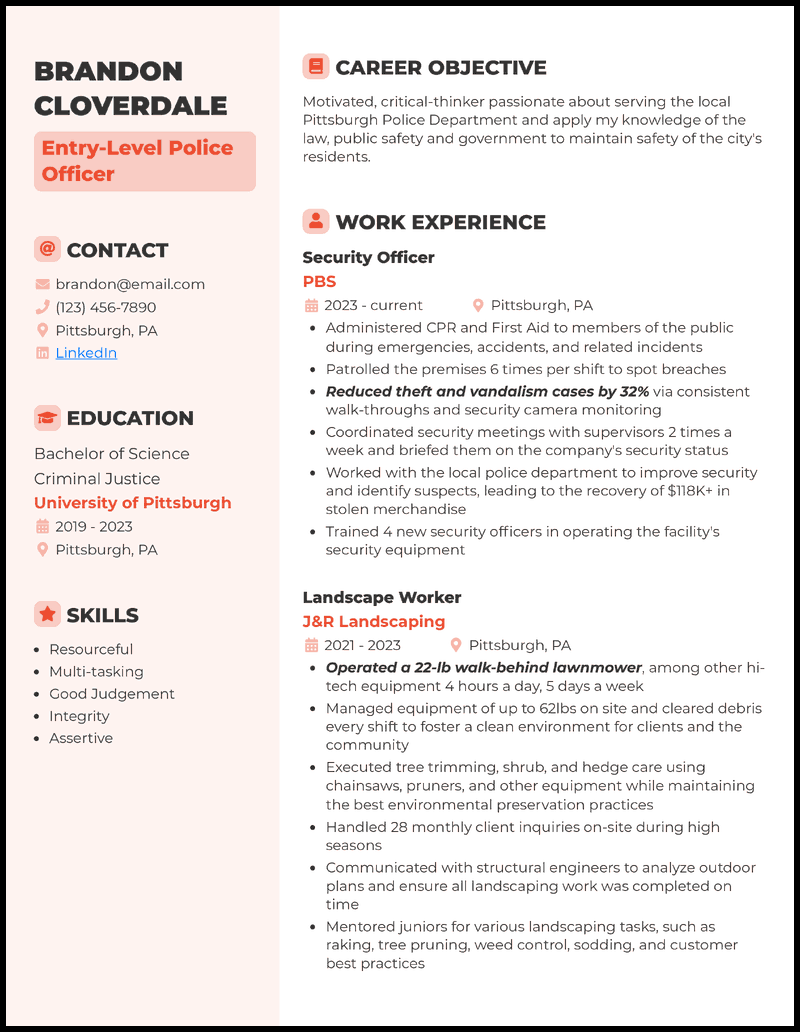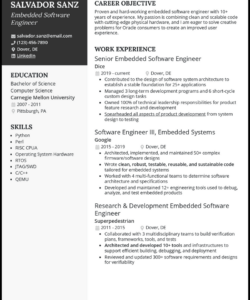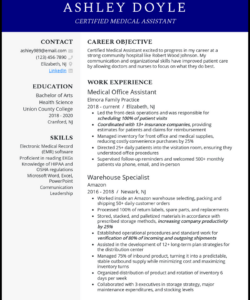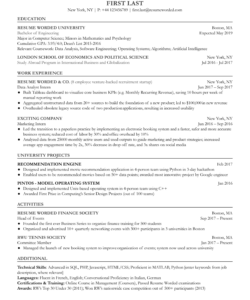Embarking on a career in law enforcement is a noble and challenging pursuit. Whether you are fresh out of an academy, transitioning from military service, or changing careers entirely, your resume is the critical first impression you make on a potential employer. It’s more than just a document; it’s your opportunity to showcase your dedication, skills, and readiness for a demanding role that serves and protects the community.
Crafting a resume that stands out, especially when you might have limited direct experience, requires a strategic approach. You need to highlight transferable skills, relevant training, and a strong sense of commitment. This guide will walk you through the essential components and best practices to build an impactful resume that helps you take the first step towards a fulfilling career in public safety.
Crafting Your Entry Level Law Enforcement Resume: Key Sections
When putting together your resume for an entry-level position in law enforcement, it’s crucial to understand that agencies are looking for a blend of formal training, practical skills, and specific personal attributes. Unlike a corporate job, where a long list of previous employers might be the norm, law enforcement values discipline, integrity, and the ability to operate under pressure. Your resume needs to convey not just what you’ve done, but who you are and what you can become within the force. Focus on presenting a clear, concise, and compelling narrative that demonstrates your potential as a valuable public servant.

Contact Information and Professional Summary
Start with the basics: your full name, phone number, professional email address, and optionally, a LinkedIn profile if it’s relevant and polished. Immediately following, a powerful professional summary (sometimes called a resume objective for entry-level roles) is essential. This is a 3-4 sentence paragraph that encapsulates your most relevant skills, training, and career aspirations. For an entry-level law enforcement role, highlight qualities like strong ethical conduct, dedication to community safety, quick learning ability, and excellent communication skills. Tailor this summary to align with the values and mission statement of the specific department you are applying to.
Education and Training
This section is paramount for an entry-level candidate. List your most relevant and recent education first. This includes any police academy training, college degrees (especially in criminal justice, sociology, or related fields), and high school diplomas. Be sure to include graduation dates or expected completion dates. Crucially, also list any certifications that demonstrate your preparedness for law enforcement duties.
- Police Academy completion (include date and name of academy)
- Associate’s or Bachelor’s Degree (Major, University, Graduation Year)
- POST (Peace Officer Standards and Training) Certification
- First Aid, CPR, and AED certifications
- Defensive tactics or firearms certifications (if applicable and relevant)
- Any specialized training related to crisis intervention, de-escalation, or community policing
Relevant Experience (Even if Limited)
Even without direct law enforcement experience, you likely possess valuable transferable skills. Think broadly about any roles where you demonstrated responsibility, critical thinking, problem-solving, teamwork, or leadership. Military service, security guard positions, volunteer work, or even customer service roles can provide excellent examples. For each entry, briefly describe your responsibilities and, more importantly, quantify your achievements where possible.
- Security Guard: Patrolled premises, managed access control, responded to incidents, completed detailed reports. (e.g., "Monitored and secured a 10-acre property, reducing unauthorized access by 15%")
- Military Service: Highlight rank, units, deployments, and specific duties that involved discipline, teamwork, or leadership. (e.g., "Led a team of 5 in high-pressure tactical exercises, consistently achieving mission objectives.")
- Volunteer Work: Describe roles in community watch programs, youth mentoring, or emergency services. (e.g., "Assisted in organizing community safety events for over 200 participants.")
- Customer Service: Focus on conflict resolution, de-escalation, and communication skills. (e.g., "Resolved customer complaints with a 95% satisfaction rate, often involving sensitive situations.")
Remember, every experience can be framed to show your readiness for the challenges and responsibilities of law enforcement.
Showcasing Your Skills and Attributes for Law Enforcement Success
Beyond formal qualifications, a successful law enforcement officer possesses a unique set of skills and personal attributes. Your resume should effectively communicate that you embody these qualities. Agencies are looking for individuals who are not only capable but also demonstrate sound judgment, high ethical standards, and the ability to connect with diverse communities. This section is where you can truly differentiate yourself by highlighting both your hard skills and crucial soft skills that are invaluable in the field.
Emphasize specific skills that are directly applicable to policing. While your experience section might imply some of these, a dedicated "Skills" section allows you to clearly list them. Think about the daily tasks of an officer and what abilities they require. Consider both technical skills and the less tangible but equally important interpersonal qualities.
- Communication Skills: (Verbal and Written, Report Writing, Active Listening, Public Speaking)
- Problem-Solving and Critical Thinking: (Ability to assess situations quickly and make sound decisions)
- Decision-Making Under Pressure: (Demonstrated ability to remain calm and effective in stressful environments)
- Conflict Resolution and De-escalation: (Experience in mediating disputes and calming tense situations)
- Physical Fitness and Mental Resilience: (Highlight any athletic achievements, certifications, or training)
- Ethical Conduct and Integrity: (Implicitly or explicitly stated through your achievements and character)
- Teamwork and Collaboration: (Ability to work effectively within a unit and with other agencies)
- Observation and Attention to Detail: (Crucial for evidence collection and situational awareness)
- First Aid and Emergency Response: (List specific certifications)
- Proficiency in relevant software or databases: (e.g., crime reporting systems, dispatch software)
- Foreign Language Fluency: (Highly desirable in diverse communities)
Remember to tailor this section to the job description of the specific department you’re applying to. If they mention a need for community engagement, ensure your resume highlights your communication and interpersonal skills. If the role emphasizes tactical response, lean into your physical fitness and decision-making abilities. Proofread meticulously. A single typo can undermine your credibility. It is often helpful to have another person review your entry level law enforcement resume template to catch any errors or areas for improvement.
The journey to becoming a law enforcement officer begins with a powerful first impression, and your resume is that critical tool. By carefully curating your experiences, emphasizing relevant skills, and presenting a professional document, you significantly increase your chances of moving forward in the competitive application process. Dedication, precision, and a genuine desire to serve are qualities that shine through a well-crafted resume, opening doors to a challenging yet deeply rewarding career path.
Your resume is an ongoing project, evolving as you gain more experience and training. Continuously update it to reflect your latest achievements and skills, ensuring it remains a dynamic representation of your capabilities. With a strong resume in hand, you are well-prepared to embark on the next exciting chapter of your professional life, contributing to the safety and well-being of your community.


